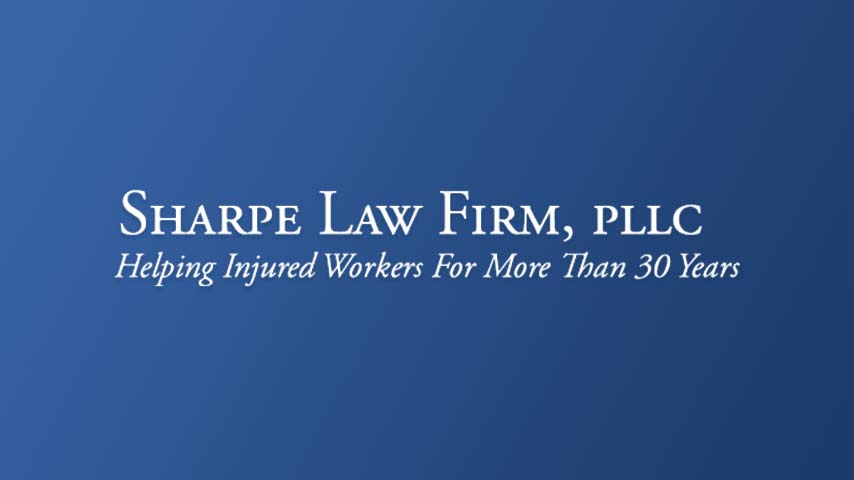L&I Claims are Either State Fund or Self Insured
- L&I claim administrative management come in two varieties. State Fund and Self Insured.
- State fund claims are managed by L&I.
- Self Insured claims are managed by the self insurer, or their service company . The usual self insured service companies are Broadspire, Crawford & Company, ESIS, Eberle Vivian, Gallagher Bassett, Helmsman, Penser, and Sedgwick CMS.
- In theory both types of claims, state fund or self-insured, should be handled the same. However it doesn’t work that way.
Self Insured Employers- May Not Be Fair
Employers with sufficient assets can self insure their L&I claims. These self-insured employers manage their L&I claims in house or with the help of a service company. Employers self-insure to save money. One way they save money is by not paying it to injured workers. If you have a self-insured claim and a serious injury, you are already at a disadvantage. Some of the biggest self-insured employers in Western WA are ABM Services, Alaska Airlines, Hanford, Boeing, Washington Hospital Services, Weyerhaeuser, Baugh Construction, King County, Paccar, and Pepsi Cola.
L&I Self Insured Section – Should be There To Help You
It is the job of L&I’s self insured section to oversee self insurers and make sure that they are following the law. Don’t count on it. The L&I Self insured section is too busy to look at most self-insured decisions. As a result self insured employers often do unfair things knowing that L&I won’t notice. If you get a bad or unfair decision, you need to do something. Speak up, protest or appeal. If you don’t complain, protest or appeal, then they get away with their unfair claims management.
What You Can Do if the Self Insured is Unfair – Self Insured Complaints
Don’t put up with bad treatment from your claims manager.
If you don’t like how your self insured employer is handling your claim, you need to take action. Become involved, get vocal, do something! Don’t let your self insured employer push you around. Here some things you can do.
- Protest or Appeal unfavorable orders. Do this before it’s too late. See Protest and Appeal.
- Talk to your self insured claims manager. This is your employer’s HR department or a service company such as Sedgwick, Gallagher Bassett, Pinnacle Risk Management, Eberle Vivian, Penser North America or Matrix. Ask them for an explanation of what they are doing. Tell them what you think. If they are wrong then tell them so and ask for what you want.
- Communicate with the L&I Self Insured Section about your self insured employers behavior. This is L&I. You also have a claims manager at L&I, in the self insured section. It is the job of the L&I self insurance section too oversee self insured employers. If you are being unfairly treated by your employer and their claims manager, call the Self Insurance Section at 360-902-6901. Encourage them to do their job and help you with your claim.
• Online: Report a Problem with a Self Insured Employer
- L&I Audit. If your self insured employer is completely despicable and has repeatedly denied your access to the benefits you deserve then you can also ask for an L&I audit of your employer’s compliance with self insured employer requirements.
- Talk with an L&I lawyer. If you want someone to help with the legal work, talk to a lawyer. We eat self insureds for breakfast. L&I Lawyer.
Washington L&I Penalties to the Self Insured Employer
Self Insured Employers Must Follow the Law
Some employers are self-insured and manage their own workers compensation claims.
They choose to self insure because they wish to save money. Some self insurers will try to save money by not paying it to you. Don’t let them do this to you. Stand up for your rights and insist the self insurer treat you fairly. If they do not treat you fairly then you may wish to request a penalty.
Penalty law for refusing to pay or delaying benefits is authorized by RCW 51.48.017. This law assesses a penalty of the greater of $1,000 or 25% of the amount due. Payment is to the injured worker.
Penalties are for Unreasonable Delay Paying Benefits
Self-insured employers are required to pay workers compensation benefits on time. If your self insured employer delays benefits or refuses to pay benefits as they come due, they can be penalized.
The department of Labor and Industries will consider assessing a penalty for unreasonable delay of benefits under the guidelines of WAC 296-15-266.
Delayed benefits subject to penalty include time loss, loss of earning power, coverage of medical conditions, payment of medical bills, authorization of emergency medical care and permanent partial disability.
It is Difficult to Get L&I to Order a Penalty.
Unfortunately in their administrative regulations, L&I allows the Self Insured employers to get away with delayed payment if there is any legal or medical doubt that payment is due. Said another way, if the self insured gets a bogus IME it is difficult to get a penalty. This isn’t right. The opinion of the attending doctor should prevail. See: Clark County v McManus
Penalties which can be assessed against Self Insured employers for certain proscribed conduct:
Some penalties are payable to the injured worker, others to L&I.
- Unreasonable delay: RCW 51.48.017; WAC 296-15-266
- Failure to comply with a CRSSA: RCW 51.04.063
- Failure to conspicuously post required information: RCW 51.14.100(1)
- Failure to keep and or furnish compensation records: RCW 51.14.110
- Failure to timely provide the claims file: RCW51.14.120(1); WAC 296-15-420(7)
- Failure to timely notify L&I: RCW 51.14.120(2); WAC 296-15-480; WAC 296-15-420(1)
- Failure to submit a medical report of closure: RCW 51.14.120(3)
- Failure to timely act on a filed claim: RCW 51.14.130; WAC 296-15-350
- Failure to keep and allow inspection of payroll records: RCW 51.48.040
- Failure to follow L&I rules RCW 51.48.08
Penalty for Violating Good Faith and Fair Dealing for Municipalies and Firefighter Employers
Self-insured municipal employers and self-insured private sector firefighter employers and their third-party administrators have a duty of good faith and fair to workers with respect to all aspects of workers’ compensation.
The Department of Labor and Industries (L&I) is required to enforce the duty of good faith and fair dealing.
Penalties can be assessed for violations of duty.
The Director shall withdraw a self-insured municipal employer’s certification as a self-insurer if the employer violates the self-insurer’s duty of good faith and fair dealing three times within a three-year period.
A penalty request is made by sending a written request to Labor and Industries. The director of L&I is required to issue an order within 30 days of your request. Some penalties are payable to the injured worker and some are payable to L&I.
Frequently asked questions about self insured penalties and more insight about how a court, the Board of Industrial Insurance Appeals, looks at penalties see : Penalties (RCW 51.48.17)
Penalty Amount to Increase
Penalties amounts for inappropriate claim handling of Washington State injured workers to increase RCW 51.48.095 will increase penalty amounts adjusted for inflation every three years. The 2023 adjustment will be 16.1%. The table below sets out by violation the adjusted penalty that will be paid to the injured worker for penalties.
| Violation | Description | Current Penalty Amount | Anticipated Adjusted Penalty based CPI-W from 2020 through October 2022 | Additional information |
|---|---|---|---|---|
| Failure to register (RCW 51.48.010) | This penalty applies to businesses that do not open a workers’ compensation account prior to operating with covered workers. | The greater of:$1000; or 2 times the premiums owed for 4 quarters before obtaining coverage. | $1161 | For more information on the requirement to open a workers’ compensation account, see rules under chapter WAC 296-17and information on the L&I website. |
| Self-insurer delaying or refusing to pay benefits (RCW 51.48.017) | This penalty applies to a self-insurer’s delay or refusal to pay benefits. | The greater of:$1000; or25% of the amount due or each underpayment. | $1161 | |
| Stop work order (RCW 51.48.022) | This penalty applies to businesses that violate a stop work order issued by L&I for failure to obtain workers’ compensation coverage. | $1000 for each day not in compliance | $1161 | |
| Failure to keep records (RCW 51.48.030) | This penalty applies to businesses that fail to keep the required records for their covered workers. | The greater of:$500; or2 times the quarterly premium. | $580 | For more information on required records, see WAC 296-17-35201 and information on the L&I website. |
| Refusal to allow inspection of records (RCW 51.48.040) | This penalty applies to businesses that don’t allow L&I to inspect their books and records or refuse to submit their books and records for inspection. | $500 | $580 | |
| Physician or Advanced Registered Nurse Practitioner (ARNP) requirements to file accident reports and assist injured workers (RCW 51.48.060) | This penalty is for physicians or ARNPs who are the first provider to diagnose a worker for an occupational injury or illness and fail to timely file an accident report with L&I or who fail or refuse to render all necessary assistance to the injured worker. | $500 | $580 | Provider resources and information can be found on the L&I website. |
| Compliance with Title 51 RCW and L&I rules (RCW 51.48.080) | This penalty applies to a person or business that fails to comply with workers’ compensation requirements under Title 51 RCW or L&I rules. | $1000 | $1161 | |
| Willfully obtaining erroneous payments (RCW 51.48.250) | This penalty applies to any person, business, or other entity who willfully obtains or attempts to obtain erroneous payments or benefits. | The greater of:$1000; or 3 times the amount of the excess benefit or payments. | $1161 |
Ombudsman for Self Insured L&I Claims. Who are they?
Injured workers of Self Insured employers can seek help from the Office of the Ombudsman at anytime during their claim. The Ombudsman can provide injured workers with many resources to address claims discrimination, claims suppression, unnecessary IME’s, delayed time loss payments and denied medical treatment.
Getting the Self Insured employer and their third party administrators to do the right thing is not easy. The Ombudsman’s knows this and is there to help you. It is their job to get involved and to make Self Insured Employers do the right thing.
The Office of the Ombudsman needs to hear from you if you have problems when dealing with your large self insured employer. They need you to report problems with the claims management companies hired by the employer so they can work directly with the employer and their third party claims administrators to resolve the issues delaying proper payment of benefits.
Sometimes a knowledgeable advocate is all you need to push the Self Insured Employer to do the right thing and authorize your benefits. Through the ombudsman, self-insured workers have access to knowledgeable and effective advocates who are able to work in partnership with self-insured personnel. The Ombudsman’s office is there to help you, the worker, receive appropriate benefits under the law.
The Ombudsman can be reached here, Office of the Ombudsman, or by calling 888-317-0493










